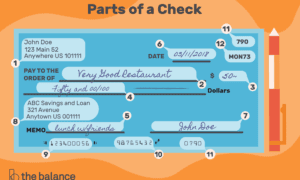Managing business payments used to feel like juggling too many moving parts—paper invoices, delayed approvals, manual reconciliations, and unpredictable cash flow. But today’s companies operate in a fast-moving world where efficiency and accuracy are non-negotiable. That’s where modern B2B payment methods, especially credit card-based systems, are stepping in to make life easier for finance teams and business owners alike.
While the idea of using credit cards for business is nothing new, the way they’re being used in B2B environments has grown dramatically. With smarter automation, clearer oversight, stronger controls, and more flexible payment structures, businesses are finally moving away from outdated processes that hinder their growth. And in a time when digital transformation is happening across industries—from logistics and retail to manufacturing and healthcare—improving how companies handle payments is no longer just convenient; it is essential. It’s essential.
Why Traditional Business Payments Slow Companies Down
For decades, B2B payments have revolved around methods such as checks, bank transfers, and lengthy invoicing cycles. These processes worked well enough in the past, but they come with several challenges:
- Long payment cycles
Many invoices take 30–90 days to be processed and paid, which strains suppliers’ cash flow. - High administrative workload
Every step—approval, payment, reconciliation, reporting—often requires manual work, leading to delays and human error. - Limited visibility
It’s challenging to gain real-time insights into what the company is spending, who approved it, and how budgets are being utilized. - Difficult expense management
Finance teams frequently spend hours chasing receipts, clarifying transactions, or matching records with bank statements.
For small to medium-sized suppliers, slow payments can even make or break their ability to operate efficiently. Meanwhile, larger companies lose precious time and resources managing systems that don’t scale with demand.
This is why many organizations are now turning to smarter and more automated approaches. One of the most significant shifts has come from utilizing modern B2B credit card systems to streamline everyday transactions.
The Rise of Modern B2B Credit Cards in Business Operations
The role of credit cards in business has evolved far beyond travel bookings and office purchases. Today’s B2B credit card platforms come with built-in tools designed specifically to streamline financial operations.
Here’s why modern credit card solutions are gaining popularity:
1. Faster Payments, Better Cash Flow
Suppliers benefit when they get paid quickly, and buyers benefit when they have more predictable payment schedules. Unlike traditional invoice cycles, card payments can be processed instantly or within just a few days. This improves relationships on both sides—buyers enjoy smoother operations, and suppliers get cash faster.
2. Automated Spend Controls
Finance teams can set custom rules such as spending limits, merchant restrictions, or category-based controls. This prevents misuse while reducing the need for manual oversight. For example, a construction firm can issue a virtual card for each project manager, with purchases capped at a set amount and limited to approved suppliers.
3. Real-Time Visibility
Modern business payment ecosystems provide companies with live access to transaction data—eliminating the need to wait for statements or end-of-month reports. This helps teams catch unusual activity early and make informed budgeting decisions.
4. Streamlined Reconciliation
Automated reporting and transaction matching reduce hours of manual work. This is especially valuable for fast-growing businesses where the volume of payments increases quickly.
How These Solutions Create Everyday Convenience Across Industries
You can see the impact of modern B2B credit card systems across various industries, with each benefiting in its own unique way.
Retail & E-commerce
Retailers often face unpredictable supply needs, particularly during seasonal demand periods. Having immediate access to controlled credit card payments means they can reorder stock without waiting for lengthy approval cycles. Real-time tracking also helps prevent overbuying or overspending.
Healthcare Providers
Clinics, hospitals, and health services regularly purchase medical supplies from multiple vendors. With automated card systems, they can quickly approve purchases while maintaining strict oversight of item categories, quantities, and spending patterns. This ensures compliance and improves operational speed.
Logistics & Transportation
Fleet managers can assign virtual or physical cards to drivers, limit their use to fuel stations, and track spending automatically. This eliminates the messy process of collecting physical receipts and manually entering expenses.
Professional Services
Agencies, consultants, and contractors often juggle multiple client accounts. Using smart credit card systems enables them to issue separate cards for each project, keeping expenses neatly organized for billing and reporting purposes.
These real-world benefits are why more companies are making the switch. The shift isn’t just about convenience—it’s about building systems that grow with the business.
The Key Role of Digital Integration and Automation
Digital transformation has been reshaping everything from manufacturing processes to retail customer experiences, and payments are no exception. One major driver behind the success of modern B2B payment systems is their seamless integration into existing workflows.
Many platforms now connect with accounting tools, enterprise resource planning systems, online marketplaces, and operational dashboards. This eliminates data silos, making financial reporting far more accurate. This evolution mirrors similar improvements seen in other sectors, such as the rise of automated global trade systems that help companies operate at scale.
By integrating payment activities into a single, unified view, companies reduce risks and provide leadership teams with the visibility they need to make informed decisions.
Smarter Spending, More Control, and Better Efficiency
As organizations grow, managing their spending becomes increasingly challenging. Employees make more purchases, vendors increase, and approval chains get longer. With traditional systems, this creates gaps—missed invoices, unclear spending trails, or mismatched financial records.
Modern B2B credit card systems turn this around by pairing flexibility with control. Features such as virtual cards, detailed tracking, automated rules, and real-time alerts help businesses stay organized while minimizing administrative tasks.
When companies have the ability to manage expenses tightly but without slowing down day-to-day operations, efficiency naturally improves.
This is especially helpful for remote or hybrid teams, where employees may need to purchase tools, subscriptions, or equipment from various locations. Smart credit card tools eliminate friction and enable finance teams to maintain oversight from anywhere.
The Role of Trust and Transparency in Modern Payment Systems
In today’s environment, businesses want more than speed—they want clarity. Transparency matters because it builds trust internally (between teams) and externally (between buyers and suppliers).
By providing organizations with clearer insights into spending patterns and financial data, modern systems help foster healthier business relationships. In an era where digital accountability and financial accuracy are crucial, this level of transparency is becoming a significant competitive advantage.
Why Businesses Are Switching to Modern Payment Tools
Some of the most important reasons companies are moving toward new payment solutions include:
- Greater efficiency
- Improved supplier relationships
- Stronger financial controls
- Faster processing
- Enhanced fraud protection
- Easier budget management
- Better scaling capabilities
These improvements allow businesses to work smarter rather than harder.
As part of this shift, many organizations are beginning to adopt b2b credit card solutions as part of their financial modernization efforts. By utilizing these tools, businesses can eliminate bottlenecks, streamline payments, and maintain greater control over expenses.
Final Thoughts: A Modern Approach for a Modern Business World
In a rapidly changing landscape, companies can no longer rely on outdated payment systems that hinder their progress. Enhancing financial processes is just as important as improving sales, operations, or customer experience. Modern credit card-based B2B systems help businesses achieve something invaluable: speed, clarity, and control.
Whether it’s simplifying supplier payments, automating expense tracking, or improving financial visibility, these solutions are becoming a key part of how companies operate today—and how they’ll continue to grow in the years ahead.





























